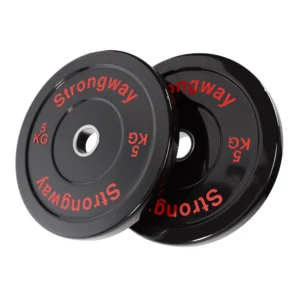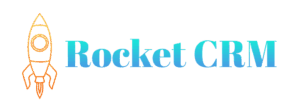Los Angeles, California – October 17, 2025 – PRESSADVANTAGE –
Rocket CRM has announced the deployment of a new automation framework within its Customer Relationship Management (CRM) platform. The update introduces deeper process automation, refined data synchronization, and expanded integration support, allowing organizations to coordinate marketing, sales, and support workflows with higher precision and less manual intervention.
The enhanced system enables users to create event-based workflows that automatically trigger predefined actions when specific conditions occur. Examples include initiating a lead-nurturing email when a contact completes a form, assigning a follow-up task when a deal reaches a certain stage, or generating alerts for inactive leads. These automation rules are designed to eliminate repetitive steps while maintaining oversight through clear audit trails and reporting metrics.

The new functionality broadens the existing logic library to include nested conditional branches and multi-tier triggers. This allows workflows to react to complex combinations of data signals—such as engagement history, purchase frequency, or support ticket activity—ensuring that responses are not just timely but contextually relevant. Organizations may now configure layered automation sequences that adapt dynamically to customer behavior.
Segmentation and targeting tools have also been upgraded as part of this release. Users can now define dynamic audience groups based on continuously updated data attributes, including contact engagement, opportunity score, or interaction frequency. These dynamic segments automatically refresh in real time, ensuring that campaigns and outreach efforts consistently reflect the most accurate information available.
Rocket CRM’s automation update includes a redesigned visual workflow builder that provides a clear view of process sequences from start to finish. The builder supports drag-and-drop logic construction, allowing users to map multi-step customer journeys without writing code. Each node in the workflow can represent an email send, task creation, webhook trigger, or data update, all connected through conditional logic that determines subsequent actions. The visual layout enables teams to see how individual processes intersect and where automation influences customer touchpoints.
Integration capabilities have been expanded to align Rocket CRM’s workflows with third-party systems. Through updated API endpoints and prebuilt connectors, users can now synchronize automation with external applications such as payment gateways, support ticketing tools, e-commerce systems, and marketing platforms. Data exchanged between systems can initiate or modify CRM workflows in real time, enabling end-to-end automation that spans multiple departments and software environments.
For example, when a customer completes a purchase on an external platform, Rocket CRM can automatically log the transaction, update the contact’s lifecycle stage, and schedule a post-purchase follow-up sequence. Similarly, if a support ticket is marked as resolved, the CRM can trigger satisfaction surveys or re-engagement campaigns without manual coordination between systems.
The new release also refines reporting and analytics within the automation dashboard. Users can access detailed performance metrics showing conversion rates, message delivery statistics, workflow completion times, and bottlenecks across automation paths. These insights help organizations identify inefficiencies in outreach sequences or missed opportunities in lead handling. Rocket CRM’s analytics engine aggregates this data into visual summaries that track automation effectiveness over time, providing actionable feedback for continuous improvement.
In parallel, task and notification management features have been improved to integrate more closely with automation rules. Follow-up reminders, meeting scheduling, and internal task assignments can now be automatically generated based on contact activity or deal progression. Each task record inherits relevant contextual data from the associated contact, ensuring that assigned team members have the necessary background at a glance. Status changes, activity completion, and internal communication logs are also captured automatically to preserve a complete historical record.
Rocket CRM emphasized that the automation enhancements were developed with data governance and reliability in mind. Access permissions now determine who may modify workflow logic or approve automation actions, and all configuration changes are captured through detailed audit logs. The platform also employs encryption protocols to protect information both at rest and in transit. These measures ensure that automation operates within organizational compliance standards and maintains traceability throughout its operation.
Usability improvements accompany the technical updates. New onboarding templates allow teams to deploy common workflow types—such as lead nurturing, post-sale follow-ups, and event-based notifications—without starting from scratch. Interactive tooltips and in-platform guides assist with setup, providing context and best practices as users configure logic paths. These onboarding features aim to shorten the time required for teams to adopt automation and reduce dependency on technical personnel.
The automation update is available to all Rocket CRM customers under existing plan tiers. Higher-level subscriptions continue to include advanced workflow capabilities, contact segmentation tools, and multi-channel messaging options as part of the platform’s integrated marketing and sales automation suite.
Rocket CRM’s development team indicated that this release forms part of an ongoing roadmap emphasizing automation, integration, and predictive analytics. Future updates are expected to extend the system’s ability to recommend automation strategies based on behavioral data, enabling more proactive engagement models.
Industry analysts observing CRM technology trends note that automation has become central to how organizations manage customer engagement at scale. According to multiple research reports, the majority of enterprises now consider workflow automation an essential requirement in CRM systems, particularly for improving efficiency in outreach and lead management. The most recent update from Rocket CRM aligns with this market direction, reflecting a broader movement toward intelligent automation that minimizes repetitive workload while preserving transparency.
Data security and accountability continue to be priorities across automation systems. Analysts have emphasized the importance of governance controls and monitoring mechanisms to ensure that automated actions remain traceable and compliant with industry standards. Rocket CRM confirmed that these considerations were integral to the design of its new framework, combining operational flexibility with oversight features to safeguard against unintended outcomes.
The expanded automation system may appeal to organizations seeking to reduce manual intervention in customer engagement workflows, improve follow-up consistency, and unify data across tools and departments. By enhancing the logic, integration, and monitoring capabilities of its Customer Relationship Management platform, Rocket CRM aims to provide a foundation for more structured and scalable engagement operations.
For more information about Rocket CRM and its advancements in customer relationship management, visit
###
For more information about Rocket CRM, contact the company here:
Rocket CRM
Daren
info@rocketcrm.app




















